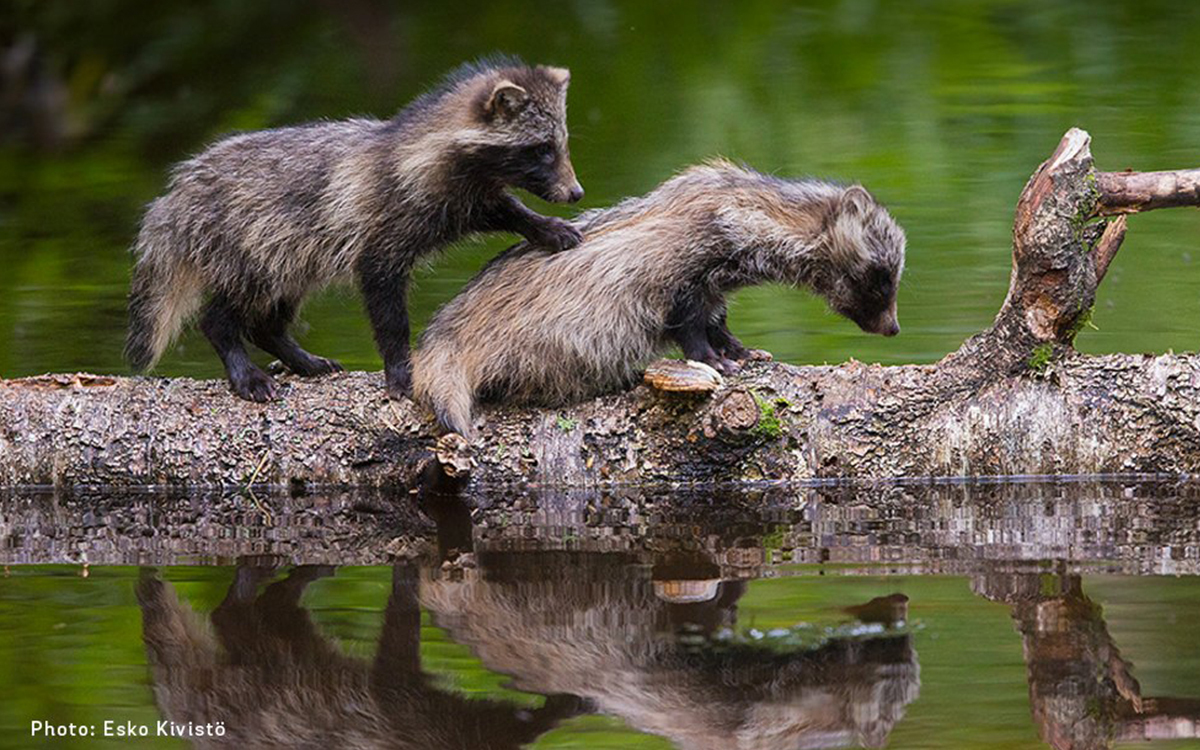

Four Romanian fashion brands commit against fur and join the Fur Free Retailer programme
Four fashion brands in Romania are committing to no longer using fur after having worked with our partner HSI Europe (Humane Society International/Europe) as part of the Fur Free Alliance – for which One Voice is the French representative – thus becoming the first designers from the country to join the global Fur Free Retailer programme. To support a legislative change to put a ban on the production of fur in the country, One Voice went there.
Four Romanian brands committed to animals!
Ioana Ciolacu, Muse um Concept, REDU, and OCTAVIA CHIRU have since taken part, with Gucci, Moncler, Prada, Adidas, H&M, and Zara, s almost 1600 fashion brands, retailers, and designers from twenty-five countries worldwide to have the Fur Free Retailer label.
Evolution in countries which could be translated at a political level: we will play our part
These announcements have come at a crucial moment in our partner’s campaign to put an end to the fur industry in Romania, with three commissions from the House of Representatives discussing a bill aiming to ban keeping mink and chinchillas. In December last year, the Romanian Senate voted in favour of the bill. In May, One Voice will meet representatives from the House concerned.
Romania is one of the rare member states of the EU where keeping animals for fur is still authorised. This practice has been banned in nineteen countries in Europe, including fourteen member states among which France has been since November 2021, following public and political concerns for animal welfare and the spread of zoonotic diseases. The fur industry in Romania is in decline, with the number of animal fur breeding farms having fallen in a spectacular fashion, going from more than one hundred and fifty in 2013 to thirteen in 2022. Nonetheless, two large mink breeding farms and a dozen chinchilla breeding farms are still active, producing around one hundred thousand mink skins and fifteen thousand chinchilla skins every year.
Last year, a secret investigation by HSI/Europe showed the suffering of the animals and their terrible living conditions within these breeding farms. Chinchillas are also kept in small, dark, dirty cages, the females being forced into an almost permanent reproductive cycle for the duration of their short lives, before being killed by having their necks broken or in improvised gas chambers.
Everywhere in the world, people are more and more outraged that it is possible to imprison and kill animals on an industrial scale just in the name of fashion. In recent years, other public, political, and scientific concerns have intensified after mink from more than 480 fur farms in Europe and North America tested positive for the virus causing SARS-CoV-2 – including the cases where the virus transmitted to humans. Foxes and raccoon dogs, species commonly bred for fur, are also susceptible to the virus.
The popular demand for a ban on breeding and importing fur on an EU scale has also been clearly shown throughout the last ten months with the Fur Free Europe European Citizens’ Initiative (ECI) having gained more than 1.7 million signatures. The European Commission must respond to it within three months and take measures as a consequence.
The reality of fur:
- More than 100 million animals are killed each year worldwide for their fur, which is equal to three every second.
- Breeding animals for fur has been banned in 19 European countries, including the Netherlands, Austria, Belgium, Czech Republic, Slovakia, Croatia, Slovenia, Luxembourg, Malta, Ireland, Estonia, France, Italy, and, since 22 September 2022, Latvia. Political debates on a possible ban are also happening in Romania, Lithuania, and Poland. Two other countries (Switzerland and Germany) have implemented laws so strict that this practice has effectively stopped, and three other countries (Denmark, Sweden, and Hungary) have imposed measures that have put an end to breeding certain species.
- The Fur Free Retailer programme is the main global initiative aiming to put businesses that have given up fur with clients who are looking for ethical products. The subscription is free. It aims to advise and encourage businesses to no longer use fur and to promote responsible consumption. Initiated by the Fur Free Alliance, a coalition of more than fifty animal protection associations, it is represented in Romania by the Humane Society International/Europe and in France by One Voice.
Translated from the French by Joely Justice